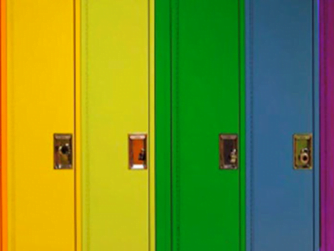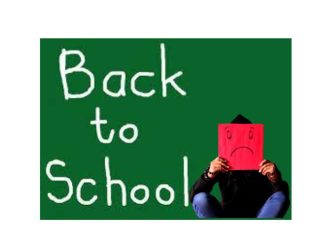
- [00:02:06] Forsyth County book bans.
- [00:04:17] Tax credits for private schools.
- [00:08:07] Third-grade retention policy.
The top need-to-know education news stories are all covered in this newsy edition of our podcast. This mini-episode of Transparency and Teaching Podcast, the News Edition, will update you on what’s happening in the education world.
The News Edition will share news about the current policies and politics happening that affect our teaching world. So this little in-between bonus episode will show up in your feed now and then to ensure you’re up to date on the latest ED news. So let’s get up to date on these stories right after this.
This episode features three education news stories that I feel may set the tone for schools and districts across the country. As we know, one district’s policies and often the politics that give birth to them can act as a bellwether that encourages other education establishments to adopt them; knowing what is happening and why is important for being prepared for what might soon be coming to a district near you.
So let’s get started.[00:02:06] Forsyth County book bans.[00:04:17] Tax credits for private schools.
[00:08:07] Third-grade retention policy.The Office of Civil Rights determines penalties for Forsyth County book bans.
I’m sure by now you’ve heard plenty of education news stories about books being removed from the shelves of school libraries. One district that faced complaints about its book removals is Forsyth County Schools, a school district in Georgia.
After a recent review of the situation by the US Department of Ed, Forsyth County Schools has entered into an agreement with the US Department of Education’s Office for Civil Rights, the OCR about how to rectify the creation of what was deemed a hostile environment in schools, due to the removal of certain books from school libraries. The district was accused of removing books from school libraries that dealt with LGBTQ plus and BIPOC topics.
The district, however, claimed to be reviewing books for sexually explicit materials they deemed inappropriate for certain age groups. Some students and families complained that this was recreating a hostile environment for some students and that the district had made no effort to discuss with students the impact of book removals.
Steps to resolve the problem
As a result, the OCR is requiring the district to take two steps, First, the county has been ordered to post notifications in prominent locations around their schools, advising students of why and how books are being reviewed. The notices must also give students directions on how to file a complaint if they feel the school has created a hostile environment.
Second, the district must https://transparencyinteaching.com/wp-content/uploads/2023/07/joshua-hoehne-wWkCAnmFF20-unsplash-1-526×296-1.jpegister a student climate survey and send the results of the survey and the resulting recommendations to the ocr. The district monitoring will continue until the OCR deems the district is compliant with the agreement. Do you think the OCR’s requirements went far enough to mitigate any issues about creating hostile environments or informing students about why and how books are being removed?
Nebraska just approved a taxpayer-funded school choice through the Opportunity Scholarships Act
Our education news stories continue with information about Nebraska, which has just approved a taxpayer-funded school choice through the Opportunity Scholarships Act. The Opportunity Scholarships Act bill approved last month gives a generous 25 million in tax credits to people who donate to a scholarship-granting organization.
These organizations will fund and then distribute the scholarships to parochial and private schools allowing low-income families to afford to attend private schools. This could eventually be raised to a hundred million dollars. Depending on the demand for the credits. Taxpayers can donate half of their state tax liability to private school scholarships.This means it allows taxpayers to divert those funds from use for other state services, such as public schools and universities.
Both sides have opinions:
Proponents say these tax scholarships have the ability to transform communities. Many families cannot afford private schools. These scholarships help increase academic achievement for students who need a different type of school environment.
Garing Senator Brian Harding suggested it will allow families who are concerned about bullying or other public school issues to be able to choose the school they feel is the best fit for their child. Opponents believe that this bill is an overly generous tax break for the wealthiest Nebraskans. It also could potentially violate the separation of church and state. This could damage public schools and communities by diverting money away from them.
But Nebraska Senator Tom Breise counters this. He says the 25 million is nothing compared to the 2 billion the state already sets aside for public education. Lincoln Senator George Duncan. , noted that in Arizona, however, two large scholarship-granting organizations misused donations and that private schools actually raised tuition. After the act was passed, this ended up pricing out even some middle-income families from choosing private schools. Also, the number of students of color in private Arizona schools didn’t rise.
Nebraska joins 18 other states with similar programs
There are currently 24 scholarship tax credit programs like this one in 19 states, of which Nebraska is now one.
According to the Education Commission of the States, scholarship tax credit programs provide a tax credit to businesses and individual taxpayers for donating funds to scholarship-granting organizations. Nonprofit organizations then manage and distribute those donated funds in the form of private school tuition scholarships to eligible students.
Another common way to use public money to pay for private education is through vouchers. Vouchers are currently available through 27 programs in 16 states and the District of Columbia.
School vouchers are state-funded programs, often called scholarship programs, that allow students to use public monies to attend a private school. The state provides a set amount of money, typically based on the state’s per-pupil amount for private school tuition.
Tennessee is to implement a retention policy for non-proficient third-grade readers.
I recently did another podcast on Tennessee, retaining third graders who are not reading on grade level. I mentioned I’d update you on whether or not the bill was passed.
Well, the bill passed on April 20th and was sent to the governor’s desk for signing. It is not scheduled to take effect until the 2023-24 school year. That allows this year’s third graders to move along without needing to meet the grade level mark. Fair warning, this year’s second graders and their parents, you best be doing a bunch of reading over the summer! Next year, you’re not going to get off so easily.
What the law says
The law has certain parameters that explain how it should be implemented. Students who are not proficient on the TCAP (Tennessee Comprehensive Assessment Program) have another option to avoid retention. Students at TCAP’s “approaching proficiency” level and who scored in the 50th percentile on the previous benchmark test can be promoted to the fourth grade. This is as long as summer school and tutoring options are available.
However, it didn’t state that those things were required for parents to take advantage of. They just stated that they had to be available. Schools are now allowed to help parents of retained students appeal the retention to the Tennessee Department of Education. Currently, if students are retained, Schools are not allowed to assist in the appeals process.
The new law requires tracking data on the success of summer school tutoring and student retention. Schools must report results to the Tennessee General Assembly to measure the policy’s success. Retained students must be assigned tutors to help them catch up.
Tennessee’s Department of Education can contract with up to three qualified tutoring agencies to ensure enough tutors are available. (Sounds to me like it might be time to start a tutoring business.)
Who’s Exempt?
There are certain students who are exempt. English language learners with less than two years of ELA instruction are not affected. Also, students who have already been held back a grade are exempt.
Which kind of sounds funny because what if the students still are not at grade level? Do they just move on at that point? Students can also avoid retention by retesting and passing the test before the beginning of the next school year.
It doesn’t state how those tests are to be given out. Do these parents have to pay for them, or are there testing centers? That information was not in the content of the law that I read.
So that’s a wrap. For the three education news stories for this episode. Let us know your opinion of this episode’s news stories. Share an education news story that you feel needs to airing. Let us know in the comments section or leave us a voice message. We’d love to feature your comments on our next episode.
Here is the list of resources used for this episode:
Book Removals May Have Violated Students’ Rights, Education Department Says
‘Opportunity Scholarship’ bill, given final OK, will make Nebraska a ‘school choice’ state
Legislature of Nebraska One-Hundred-Eighth Legislature First Session Legislative Bill 753
50 State Comparison of Private School Choice (you can find a list of states funding private school through tax dollars here)
Update to third-grade retention law approved, but changes won’t take effect until 2023-2024













